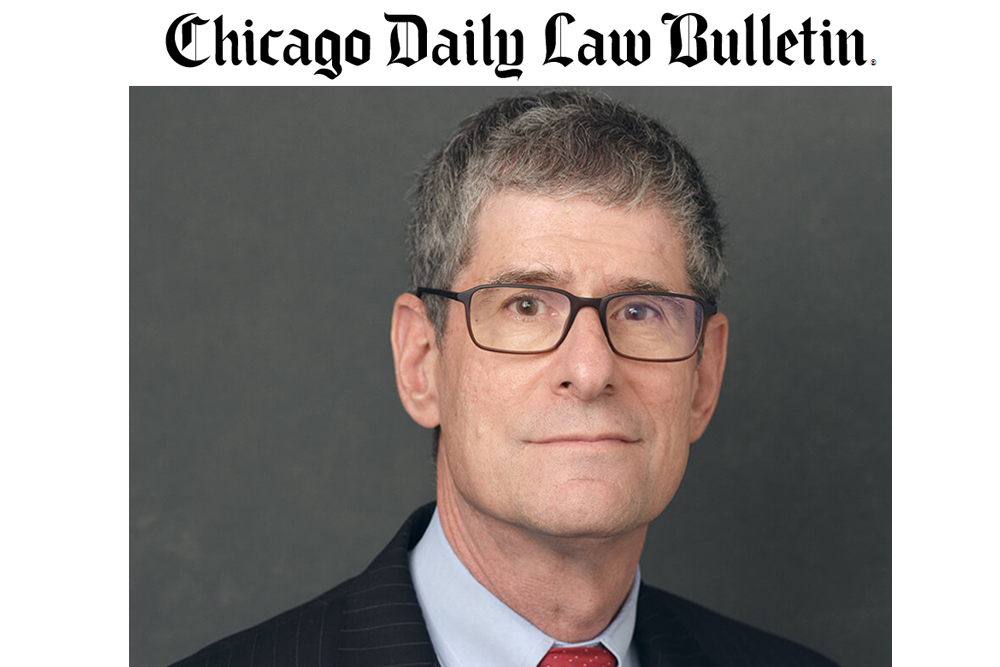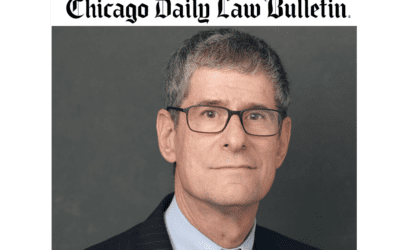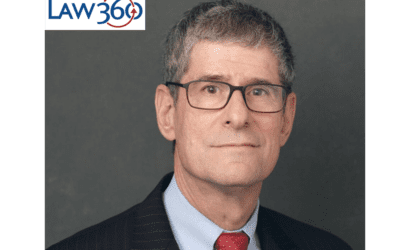Everyone knows the expression “no good deed goes unpunished.” Unfortunately, that maxim is often true, as shown by Hogan v. Zuger, Kirmis & Smith PLLP, 2024 WL 28706, 2024 U.S. Dist. LEXIS 1353 (D. N.D., Jan. 3), a decision recently issued by a federal court in North Dakota.
In 1990, the Standard Insurance Company issued a group life insurance policy to the law firm of Zuger, Kirmis & Smith PLLP based in Bismarck, North Dakota. Lawrence Dopson received life insurance coverage while he was employed as a partner with the law firm, and his wife, Christine Hogan, was named as his beneficiary.
When Dopson voluntarily left the Zuger firm in 2014, it continued his coverage under the policy and paid the premiums on his behalf, which Dopson reimbursed. The law firm also continued to report Dopson to Standard as an active employee.
Dopson died on Nov. 29, 2021. Shortly before his death, Hogan spoke with a senior member of the law firm who assured her that Dopson’s coverage was “all paid up” and that the law firm would assist her in applying for life insurance benefits after Dopson’s death.
However, when Standard received the life insurance claim and first became aware that Dopson had left the firm in 2014, it denied Hogan’s application for life insurance benefits on the ground that Dopson lost his eligibility to continue his coverage after leaving the firm.
Following an unsuccessful pre-litigation appeal, Hogan sued Standard and the Zuger firm under the Employee Retirement Income Security Act since the matter involved employer-sponsored benefits.
In addition to claiming an entitlement to benefits due under 29 U.S.C. Sec. 1132(a)(1)(B), Hogan also sued Standard for equitable relief under ERISA pursuant to 29 U.S.C. Sec. 1132(a)(3), as well as bringing suit against the Zuger law firm for breach of fiduciary duty under the same statutory section. Standard Insurance Company successfully moved for dismissal.
Since the policy conditioned eligibility for coverage on active employment, and Dopson was not an active employee of the law firm at the time of his death, the court easily disposed of the claim seeking benefits under the terms of the policy.
Even though premiums continued to be paid after Dopson’s departure from the law firm, the court found it was “clear” that Dopson was not eligible to maintain coverage after he left the Zuger firm and at the time of his death. Thus, the court determined that Hogan’s claim was not “plausible” under Section 1132(a)(1)(B).”
Hogan’s claim for equitable relief, which was based on her assertion that Standard breached fiduciary duties it owed to Dopson was also rejected. Hogan maintained that Standard’s acceptance of premiums waived enforcement of the plan terms and estopped Standard from denying coverage.
The court rejected those contentions, holding that “estoppel principles cannot be used to obtain ERISA benefits that are not payable under the terms of the ERISA plan.” That court based its finding on Fink v. Union Cent. Life Ins. Co., 94 F.3d 489, 492 (8th Cir. 1996), which affirmed a life insurance benefit denial because the decedent was not actively employed by his employer at the time of death.
The court further observed there was “no allegation that Standard misled Dopson. Rather, it is alleged the Zuger Law Firm misled Standard.”
Finding that the unambiguous policy terms made Dopson ineligible for coverage once he ceased his employment with the law firm, the court found no basis for Hogan’s claim.
The court added that the payment of premiums was irrelevant since Dopson was not actively employed by the Zuger law firm at the time of his death. Thus, despite receiving premium payments for seven years, Standard was not estopped from denying benefits due to its acceptance of premiums, the court ruled.
Finally, the court found Standard had no obligation to advise Dopson of his right to convert his group coverage to an individual insurance policy. The court also concluded that Standard had no obligation to have educated the law firm on the conversion process since the law firm was the designated plan sponsor and plan administrator and presumed to have familiarity with the contents of the policy it had purchased.
Citing Fink again, the court added: “Nor does Standard have a duty to verify coverage eligibility where the plan administrator (the Zuger Law Firm) falsely represents to the insurer that the employee is eligible and the insurer ‘had no reason to think otherwise.’” Hence, the court ruled that “Standard was the target of the scheme, not the perpetrator.”
The reason for Dopson leaving the firm in 2014 or why his life insurance was continued after he left cannot be discerned from the opinion. However, there must have been a reason such as a chronic illness.
Despite the court’s harsh language directed against the Zuger law firm, it is doubtful there was any improper motivation. It is far more likely the law firm thought it was helping Dopson and his family by permitting him to retain his life insurance without realizing the policy contained an active at-work requirement. Unfortunately, the law firm’s good deed ended up hurting rather than helping Dopson and his family.
Hogan still has a viable claim against the law firm for breach of fiduciary duty, though. The 8th U.S. Circuit Court of Appeals has explained the fiduciary duty owed by an ERISA plan administrator to provide complete and accurate advice regarding plan terms and has further made that requirement an affirmative obligation imposed on plan administrators to “inform when it knows that silence may be harmful.” Kalda v. Sioux Valley Physician, Inc., 481 F.3d 639, 644 (8th Cir. 2007).
Therefore, if the law firm failed to inform Dopson of his conversion rights, the next ruling in this case appears likely to favor the plaintiff and to punish the law firm for its actions.
Mark DeBofsky is a shareholder at DeBofsky Law Ltd.
This article was first published by Chicago Law Bulletin on January 10, 2024.







